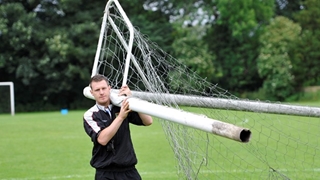The business affairs of a club are generally managed by a committee consisting of club officials, team managers and ordinary members – usually players, parents or supporters. Members can take on an active role, or could just support the club through having their say on important matters at annual general meetings.
There are a few core officer roles needed for a club’s committee. The Chairperson does not have specific duties but will oversee the work carried out by other officers. The Chair will organise and preside over committee meetings.
The Secretary is the most important role in the club and is the official contact between the club, the County FA and the competition organisers. The Secretary’s duties include: County FA affiliation, league membership, all correspondence, maintenance of club records including financial records, maintaining a player register, deal with all disciplinary matters, manage transfers and contract players.
The Treasurer must manage and administer the club’s finances, maintaining an income and expenditure record and balance sheet, which must be presented at the club’s AGM. A cash book must be retained for two seasons, an annual financial statement prepared and bank account managed in the club’s name.
All clubs with players and teams under 18 must appoint a Welfare Officer. The Welfare Officer needs to understand the club’s responsibilities when running activities for children and young people, and must help club personnel in their duty of care towards children.
On matchdays, the Secretary must ensure that team members, opponents and match officials know the date, venue, colours and timings of home matches. The Secretary must confirm the appointment of match officials in advance and appoint a club member to look after the officials, including paying their match fee. Results must be telephoned in to the league or competition as soon as possible after the match has ended.
When travelling to away matches, the Secretary must ensure the players, coaches and other team officials arrive in plenty of time for kick-off. The team will need to know directions to the venue and kick-off time.
There are a number of club duties that need fulfilling at different times of the year. Pre-season, the club must ensure it has sufficient players must be registered for each squad, subscription rates agreed and Codes of Conduct signed. Affiliations to the County FA and competitions must be renewed, training and playing facilities booked and friendlies arranged. For youth teams, a parents’ evening should be held.
During the season, home games and training need to be arranged, travel to away games, league meetings and club committee meetings. General club administration and all disciplinary procedures must be managed. At the end of the season, the club should hold an Annual General Meeting at which the annual accounts should be agreed. A presentation evening is also a good idea to congratulate the players and reward volunteers.








